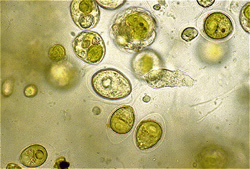Water Testing Specialists Connecticut
Water Testing Connecticut. As a private well owner, in Connecticut, you are in a unique position: You control your own water supply. With this benefit come some responsibilities. You are responsible for protecting your valuable ground water resource as well as your family’s health. Occasionally, you may wonder about the safety of your water supply. What do you do? Testing your water for the most common well contaminants is the best course of action.
How common are water problems in Connecticut? “Pure” water does not exist—all natural water contains some gases and minerals and is likely to contain some microbial organisms.
My Connecticut well water looks clear, smells OK, and tastes good, so how could it be bad for me? You cannot see or smell bacteria, protozoa or many harmful chemicals. They can only be detected using tests designed for that purpose. You should check your water quality regularly. Some sources of odors are bacteria or septic contamination, or the presence of chemicals. It is a good idea to take your nose seriously. Have the water tested at least annually.
What’s the best way to maintain my Connecticut water supply? The US EPA suggests that at a very bare minimum, every private well owner perform annual water testing for coliform bacteria, nitrates, pH, and anything else of concern to you, even if you do not perceive a change in your water. Have your water tested by a certified water testing specialist. The question of whether or not to have your water tested is a serious one that concerns the health of you and your family. If you obtain drinking water from your own well, you alone are responsible for assuring that is safe.
Call today to schedule your appointment 888-558-1574.
 August 1st, 2012
August 1st, 2012
 Water Testing Bacteria & Nitrates Connecticut: As Connecticut home owners we usually don’t give much thought to where our drinking water comes from. We turn on the faucet, the water comes out, and we drink, cook with it, shower in it. Some of us filter it through a pitcher to make it “taste better.” But how often do we consider the more important question of whether or not it is safe for us and our families to drink?
Water Testing Bacteria & Nitrates Connecticut: As Connecticut home owners we usually don’t give much thought to where our drinking water comes from. We turn on the faucet, the water comes out, and we drink, cook with it, shower in it. Some of us filter it through a pitcher to make it “taste better.” But how often do we consider the more important question of whether or not it is safe for us and our families to drink?
Almost all water contains contaminants. These can include dissolved minerals, organic compounds, and microorganisms. Some contaminants may be mostly a nuisance, having an unpleasant taste or odor. But there are other contaminants, which at certain levels can be harmful to our health. Read the rest of this entry »
 Water Testing Bacteria & Nitrates Connecticut: As Connecticut home owners we usually don’t give much thought to where our drinking water comes from. We turn on the faucet, the water comes out, and we drink, cook with it, shower in it. Some of us filter it through a pitcher to make it “taste better.” But how often do we consider the more important question of whether or not it is safe for us and our families to drink?
Water Testing Bacteria & Nitrates Connecticut: As Connecticut home owners we usually don’t give much thought to where our drinking water comes from. We turn on the faucet, the water comes out, and we drink, cook with it, shower in it. Some of us filter it through a pitcher to make it “taste better.” But how often do we consider the more important question of whether or not it is safe for us and our families to drink?




